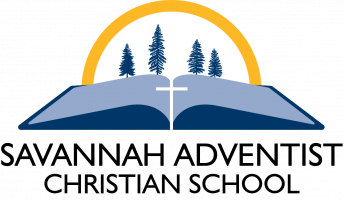Bible: Encounters
Bible curriculum includes lessons that use a combination of Biblical stories, modern-day Christian stories, mission stories, and historical stories. Each lesson has an assortment of activities that go along with the lessons. A core part of the curriculum is learning to serve others according to Bible principles.
Math:
Go Math (5th grade) embraces the importance of critical thinking. Students should already know basic math facts, and they build on those abilities while learning to use the facts in real-life situations using a mixture of word problems. Students also use IXL.com to enhance their math skills. 5th grade students will develop fluency with whole numbers and decimals, operations with fractions, and geometry and measurement.
Big Ideas (6th grade) 6th grade students will learn the number system, rations and rates, expressions and equations, and geometry and statistics.
Language Arts: Pathways, Spelling Connections and Strategies for Writing
Our Language Arts Program here at SACS is made up of four different graded categories that include language, reading, writing, and speaking and listening. Each student is given a grade in each of these categories. These grades are averaged together to result in the students final language arts grade. Our classroom uses a variety of tools and resources to teach each of these categories.
Reading: The Pathways reading program includes an assortment of literature, both fiction and non-fiction. Theme books are generally read whole-class, with discussions and comprehension questions to ensure that students are growing in their reading ability. Students are also required to independently read a minimum of 5 books per quarter, one of which is from a required genre or topic. That book becomes the basis for a book project presentation each quarter. Reading during free time in the classroom is very much encouraged.
Language: The language grade includes spelling and grammar. Spelling lessons focus on various phonetic rules, and activities require students to use context clues, understand analogies, and so on. At the end of each week, students will have a spelling test. Grammar lessons are taken from the reading and writing context, and are supplemented by work on IXL.com .
Writing: The Writing program includes a mixture of writing projects and grammar lessons based off the text Strategies for Writers. Writing strategies are taught for narrative, informative/explanatory, argument, and descriptive. Sixth graders take the WrAP assessment each spring. Students will learn to edit their classmates' papers as well as their own. Students are required to write in cursive on their spelling test. Spelling class is the only subject for which they are required to use cursive. (Handwriting is part of the Writing grade.)
Science: By Design Science
Classes include hands-on experiments, projects, and field trips, and are taught from the Biblical creation perspective, emphasizing a loving Creator and His plan for perfect restoration of the world. Four units are taught each year, with content alternating every other year, in each of the following areas: Life Science, Human Body/Health, Earth & Space Science, and Physical Science.
Social Studies:
We alternate social studies content each year, one year focusing on U.S. History (through the Civil War), and the other year focusing on World History (ancient civilizations). Projects, field trips, art activities, and study skills are incorporated.
P.E.
The physical education program in this classroom focuses on learning the major rules of different organized sports. Not only will the specific sport be taught, but sportsmanship and a good attitude are also an important part of the grade. Sports include: volleyball, soccer, football, basketball, softball, and the occasional game of mat ball or kick ball.
Art:
The main focus in art class is to nurture creative minds and teach new skills. Not everyone is naturally artistic, but it is expected for everyone to follow directions and try their best. A study of certain famous artist and their techniques will also be studied.
Music: Students in grades 5 & 6 form the SACS Tone Chime Choir. They learn new skills, work together, and perform publicly.
Skills: Students will learn to read notes and count rhythm, as well as the techniques and skills required to make the tone chime instruments produce musical sound. (Tone chimes, also called melody chimes or hand chimes, are a percussion-type instrument, in which the sound is produced by striking a hollow metal bar with a rubber clapper.)
Participation/behavior: Rehearsals are class-time activities designed to prepare student musicians to perform as a group. Attendance at rehearsals and self-disciplined focus during class are expected.
Performances: The individuals in the class will learn to become a team who—together—produce harmonious music. Performances are an important part of the grade in this class; some performances are off-campus/school day events, and others are weekend commitments.
Technology:
Students learn touch typing by use of an online website. Other skills taught include digital literacy, digital citizenship, and digital fluency.
